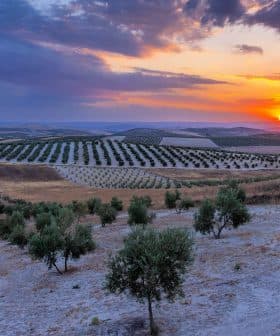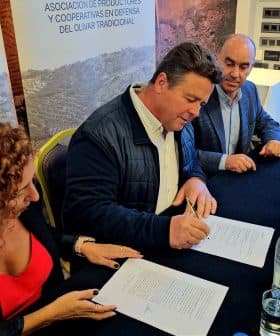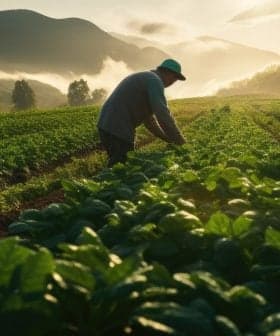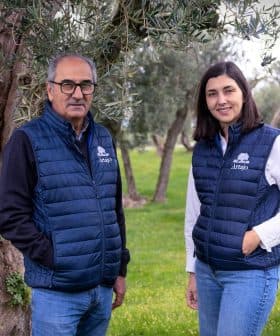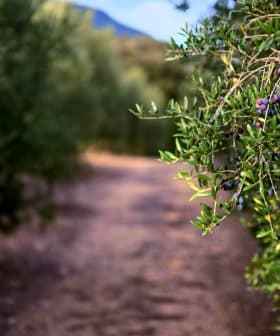Only One Percent of Olive Growers Expected to Lose Funding Under Spain’s New CAP
The new Common Agricultural Policy in Spain will benefit olive growers and oil producers, with €47.7 billion allocated over seven years. The policy focuses on sustainability, small farmers, and young farmers, with a redistribution of payments to ensure more equitable funding distribution.
Olive growers and oil producers are expected to be among the primary beneficiaries of the new Common Agricultural Policy (CAP) in Spain.
The new policy provides funding to the agricultural sectors of all 27 member states of the European Union from 2023 to 2027.
(The new CAP) is really well thought out because it helps the most disadvantaged. It helps the smallest farmers. It helps those who are very conscientious about the environment. It helps women farmers, and it helps the youngest.
Unlike previous iterations of the CAP, this one has been designed to allow each member state to create a national strategic plan for implementing the CAP. These must be formalized by the end of 2021.
The European Commission will then vet each national strategic plan before releasing the funding, paying particular attention to the scheme’s focus on sustainability, small farmers and young farmers.
See Also:New E.U. Ag Policy Could Benefit Greek Olive Growers If Requirements Are MetOverall, Spain is set to receive €47.7 billion divided over the seven years covered by the CAP (about €6.8 billion each year). Seventy-five percent of this funding will come in the form of direct payments to the country’s 695,000 farmers. The other 25 percent is earmarked for rural development.
According to Juan Vilar, a strategic consultant to the olive sector, olive growers in Andalusia – who are responsible for more than three-quarters of the country’s annual olive oil production – will receive an estimated €8.1 billion over the seven years.
While Spain’s agricultural sector has seen its funding cut by 10 percent in the new CAP, these cuts will not be applied equally. Large farmers and ranchers may have their direct payments cut by up to 25 percent, with small farmers experiencing much smaller reductions.
“With the budget drop of that 10 percent, it is believed that only one percent of olive growers will see their CAP income reduced,” Vilar told Olive Oil Times.
One of the main novelties of the newest CAP is a process known as convergence, which the European Commission has designed to redistribute payments, capping them at €60,000 per farm or €100,000 per company (with multiple farms).
“For example, already speaking of olive groves in Spain, in Andalusia, the average amount of money received is €571 per hectare,” Vilar said. “However, Jaén receives €690 per hectare, and Huelva receives €270. That is, Jaén receives three times more money than Huelva. Convergence means that little by little Jaén will receive less, and Huelva will receive more.”
However, Vilar said that convergence will lead to a more equitable redistribution of funds to small farmers, which is one of the three main goals of the new CAP set out by the European Commission.
See Also:New CAP Provides Plenty of Opportunities for Italian Olive Growers“It will be bad for olive growers who currently receive more than €60,000 per farm or jointly more than €100,000,” Vilar said. “In other words, it is good for medium and small farmers, and it is not so good for large olive growers.”
According to Vilar, the new CAP will provide the most benefits to “traditional olive growers, organic olive growers, young olive growers and olive growers who make a living from olive growing.”
Part of the reason many of these olive growers will benefit from the agreement is the strict environmental policies that are now being tied to aid payments. To be eligible for direct payments, farmers will now be required to dedicate three percent of their land to biodiversity.
Further funds will be made available to farmers who opt to transition to organic farming, implement agroecological practices and integrated pest management protocols.
“Olive growers who do things conscientiously with the environment will receive much more money than those who are not conscientious about the environment,” Vilar said.
Another change to the CAP that will benefit small farmers is changing the definition of what constitutes a farmer, which will eliminate hobby growers and some part-time farmers from the equation.
“A genuine farmer is one who receives 25 percent of their income from olive growing,” Vilar said. “So these farmers are treated differently. They are given more money and, in turn, are treated better from a fiscal point of view.”
The next step in ratifying Spain’s national strategic plan for the CAP is for the federal government and the 17 governments of the autonomous communities to come to an agreement.
Thus far, an initial strategic plan from the Ministry of Agriculture, Fisheries and Food was rejected by the Council of Autonomous Communities. They disagree with the current definition of an active farmer, the redistributive payment scheme, the aid associated with production, the definition of sectoral programs, aid for rural development and governance.
Many observers in Spain believe the process of creating the strategic plan will be long and fraught, with many separate agricultural unions lobbying for the best interests of their specific producers. However, Vilar said that he expects the plan to pass largely as it is.
“I don’t think there will be any changes to the new CAP,” he concluded. “It is really well thought out because it helps the most disadvantaged. It helps the smallest farmers. It helps those who are very conscientious about the environment. It helps women farmers, and it helps the youngest.”




